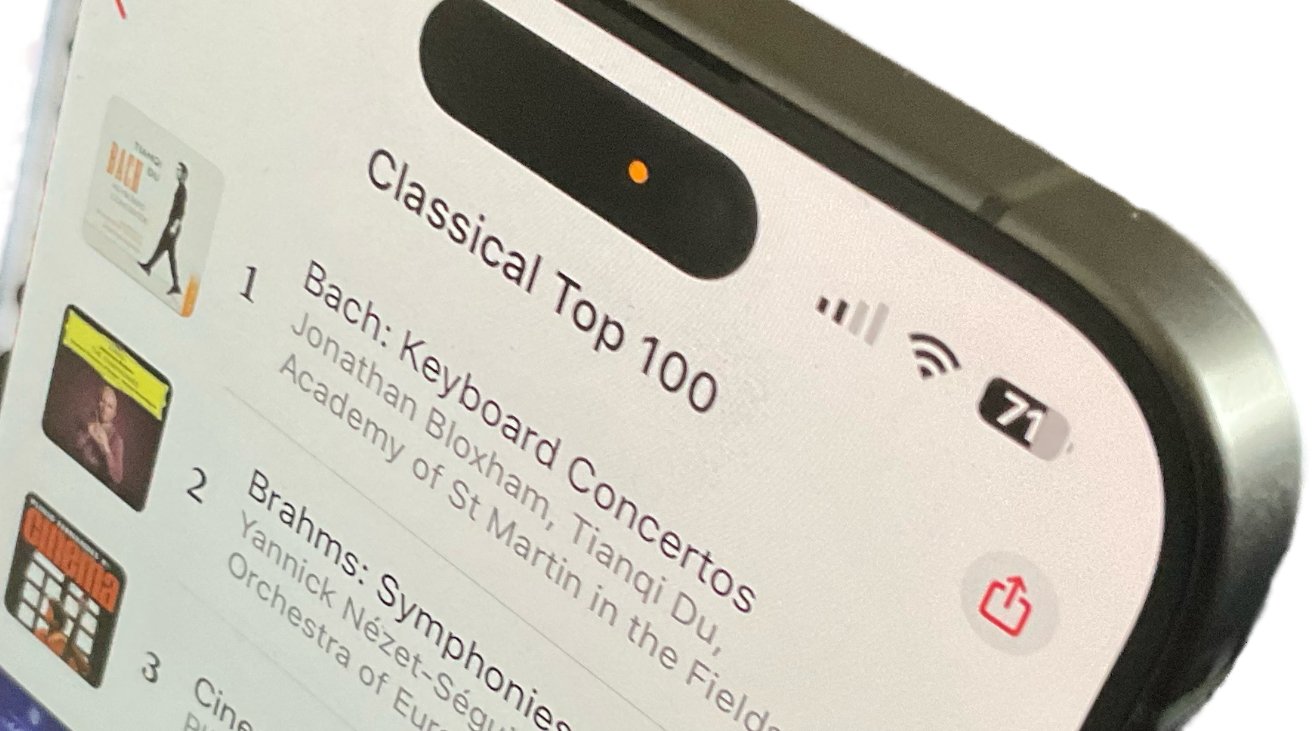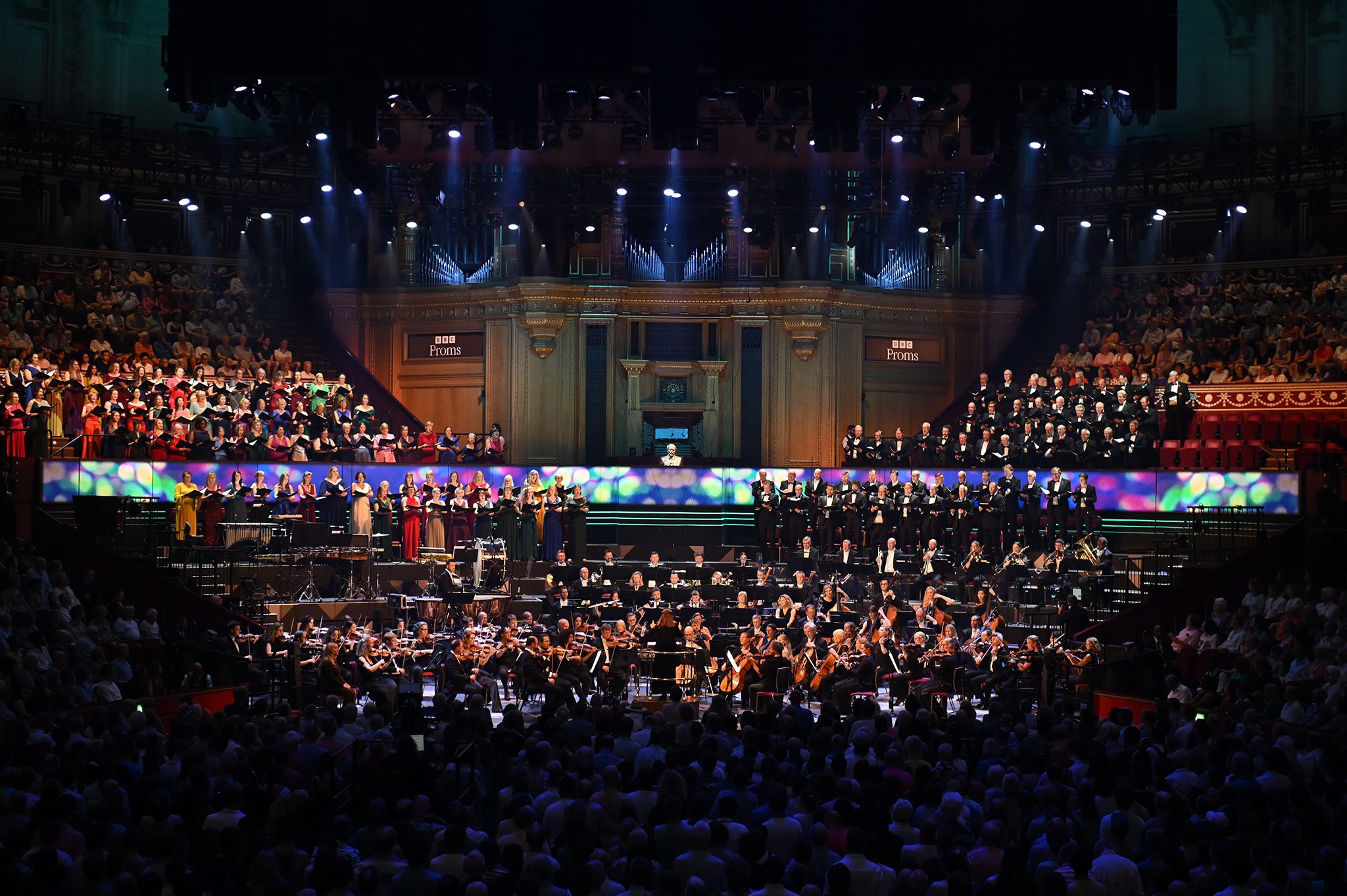On paper spending £30 to go to Oxford on the train and see the recording of a Christmas concert by the Oxford Philharmonic Orchestra seemed like a bit of an extravagance.
The Oxford Philharmonic’s programme is short, contains some old familiars – Abide with Me, Hallelujah Chorus, You’ll Never Walk Alone. And what Christmas concert is complete without some Rutter too. All of it dedicated to the work of those developing the COVID vaccine.
Compared to the last time I was in Oxford to attend a Beethoven Symposium (was it this year or last?), the live music-making experience is entirely different. Programmes are different – pragmatic artistic responses contained within a 16×9 crop, varying angles, a range of different coloured lights if the budget allows, and if you’re really lucky a bit of depth of field too.
No longer do I find myself sitting in a rehearsal wondering how best to write about a piece of music in order to get more people to consider experiencing it live. Now I sit in a kind of hermetically sealed box watching musicians shift through a series of postures in their seats according to whether they’re playing or waiting to play. When they play, the textures they create individually and collectively suggest that everything is just as it was. When they stop and wait for the producer to issue the next instruction across the talkback, they sit back and relax, waiting in silence for the next command.
This stop-start approach to music making is of course necessary. It’s a recording session. Some orchestras and ensembles have made a point of saying how they’re recording as live. Others adhere to creating recorded experiences.
“I come from the Glenn Gould school of performance,” said Oxford Phil conductor Marios.
“Oh. What’s that?”
I really should spend a bit more time researching. Or even reading.
“Gould hated audiences.”
What I’ve overlooked in a lot of my listening and thinking and writing over the past few months is that recording is as a process something that some musicians enjoy. I and a lot of others this year have spent a lot of time moping around about the ‘lack of live’, some even bemoaning how pre-records are a poor substitute. The point is that they’re different. And both are valuable.

Proceedings get underway inside the Sheldonian Theatre with two sing-throughs of Abide with Me with choristers from Merton College Oxford who stand the obligatory two metres apart from one another in the gallery overlooking the audience. The intense melancholy spun out by bows sweeping gently across strings brings an irony into focus. We’re sat here in our distanced seats, watching a similarly distanced orchestra and choir record music for a digital concert dedicated to scientists who have discovered a vaccine which could help get us out of this mess. Music sung by choristers who quite rightly observed social distancing inside the building, but didn’t need to outside whilst they waited outside. The rules that bring everyone together for this now familiar ‘live’ musical experience aren’t about safeguarding one another’s health, they’re about insurance policies. The rules are more the thing the music world is doing battle with, not the virus.

When John Rutter glides into the Theatre in his white bow tie, mask and coat tails, there’s a distinct change in energy. Rutter and the world premiere recording of his newest Christmas gift – Joseph’s Carol – is the main event for this rather strange afternoon jaunt to Oxford. He sets down his worn brown leather briefcase on the floor and bends down to open it, revealing the modest tools he needs to bring his work to life.
Rutter. A name synonymous with Christmas. A name burned into the memories of countless individuals who mark Christmas, childhood memories set to beautiful melodies, and touching harmonies. A composer who has shaped so many people’s experience of Christmas. A composer who actual exists in real life and is there down there below me stood on a podium with his open briefcase on the floor behind him.
“Is there anyone you’d like to speak to Jon?” asks Nicky the PR who had invited me for the afternoon.
This question has a surreal edge to it though Nicky doesn’t realise it at the time.
Earlier on in the day I was arranging interviews with two other high profile performers for a different story, arrangements being made via two, three or maybe four intermediaries all of whom believed that an interview could only go ahead if the questions were pre-agreed, an outline of the twenty minute interview experience was detailed and agreed. If there’s anything that is guaranteed to drain the energy from any interaction it is the assumption that it can only work if everyone knows precisely what is going to be talked about in advance. That isn’t journalism. It’s also not content.

I came to Oxford with no expectations to speak to anyone. I came only to be in amongst musicians, to get a sense of an event and to capture the resulting experience. That was enough for me. And now I’m here, sat here in a tatty jumper with a stupid mask stopping much-needed non-verbal communication being asked if there is anyone I’d like to talk to before I leave. There are only three people potentially: the Oxford Philharmonic music director Marios, tenor Bryn Terfel, and Rutter himself.
“Mr Rutter perhaps?” I say to Nicky almost apologetically. “Maybe Mr Terfel?”
“I’ll see what I can do.” And then she disappears. All very Nicky. Textbook Nicky.
And then it all gets exciting again. In a flash I’m transported back a year to all those trips that marvellous classical music PRs have invited me on to talk to wonderful people about the thing I love. All of them opportunities to be present in a space where magic happens so that the magic of it can be documented and shared wider. The crushing silliness of over-engineered ill-informed ‘interviews’ are in turn a distant memory. In its place the casual spontaneity built on trust and rapport that yields the richest of content opportunities.
Like pre-COVID days. Like the ‘old days’. Back in the game.
Me and Mr Terfel speak. I try to build rapport by drawing attention to a mutual friend of old from Suffolk Youth Orchestra days, his reaction masked. We talk about the Sondheim Prom ten years ago, him playing Sweeney, politics and the unintentional impact of vaccine developments on freelance musicians and their plight. At one stage I wonder whether he might reveal the details of his tax bill, but fortunately we end up talking about he’s become a whole more interested in video and audio production this year and how he might start kitting himself out next year. “That technically means we’d be in competition Mr Terfel,” I quip. “Yes, I suppose so.” “Well look, I’d recommend you go for the cheaper end of the market, you know?”
He signals he’s got the joke with a hearty Terfel chuckle and we pose for the customary selfie. It’s Terfel, I tell myself. This moment needs to be captured.

I find myself pacing whilst I’m waiting to speak to Rutter. A familiar feeling from Eurovision days returns in a flash whilst I mentally clock how much the other journalist in the space has had. This seems a rather futile process given that I like everyone else has suffered an internal body clock malfunction this year. The overriding emotion is one of impatience. Possibly even a sense of competition. Utterly ridiculous I tell myself. But so very familiar when you’re given the unexpected opportunity to connect with a celebrity who actually means something.
Rutter is as I expect. Softly spoken. Mild-mannered. Irritatingly modest. And as I predicted to a friend in a WhatsApp message minutes before, more than attuned to rhetorical questions asked by a fanboy. Of course he is. He went to Cambridge.

We talk about his year, his industrial nature, explaining how he chose to turn his attention to ‘painting the garage’ during lockdown – a witty metaphor for the keyboard arrangements he’s made this year of his most popular choral music. It appears in hearing him speak so modestly about his contribution to a universal experience of music that he is either unaware or unwilling to let himself get in the way of the music. He is, perhaps unsurprisingly, the manifestation of his music. Or maybe his music is a manifestation of him. Either way, I’m not going to get to the bottom of it in ten minutes, so I go for the full on clumsy, ham-fisted approach: “Do you have any sense of how much joy your brings?”
And when that doesn’t yield much, I go for “Do you think you have the best job in the world?”
“I’d do it even if I didn’t get paid.”
“And what would you like to take from 2020 into 2021?”
“Hope.”
Boom. Thank you Mr Rutter. We stand for another selfie.

After a short break, me and the other members of what I now realise was a bit of a pre-embargo press junket convene distanced seats back in the gallery. A hush passes over the Theatre. Rutter steps up to the podium. We hear Alex the producer speak from somewhere we can’t see him. “OK. Thank you very much. In your own time.”
The music Rutter has written is classic. Warm strings create a soft reassuring pillow on which Terfel’s carefully-placed voice gently rests. Beautifully balanced melodies that caress the soul supported by harmonic progressions that edge us to and fro from melancholy, hope, pain and pain. It’s difficult not to hear the carol as something that goes beyond Christmas. An anthem for a city proud for the vaccine its University has discovered. As we tread carefully through the final verse and a modest descant stretches the bittersweet tension just a little bit further, there’s a glimmer that all is not lost. Those vital connections which have proved so important over the past few years are still there. And they’re still active.

Later on, during the short trip home, I spend a lot of time beaming at the composition of the selfie – how unusually chipper I look in the shot. Maybe I’m not quite so fat around the face as I thought I was. Maybe I have still got a jaw. Better that Rutter with his still strong chin is in the background slightly out of focus.
Hear John Rutter’s Joseph’s Carol on 18th December via the Oxford Philharmonic’s YouTube and Facebook page.



